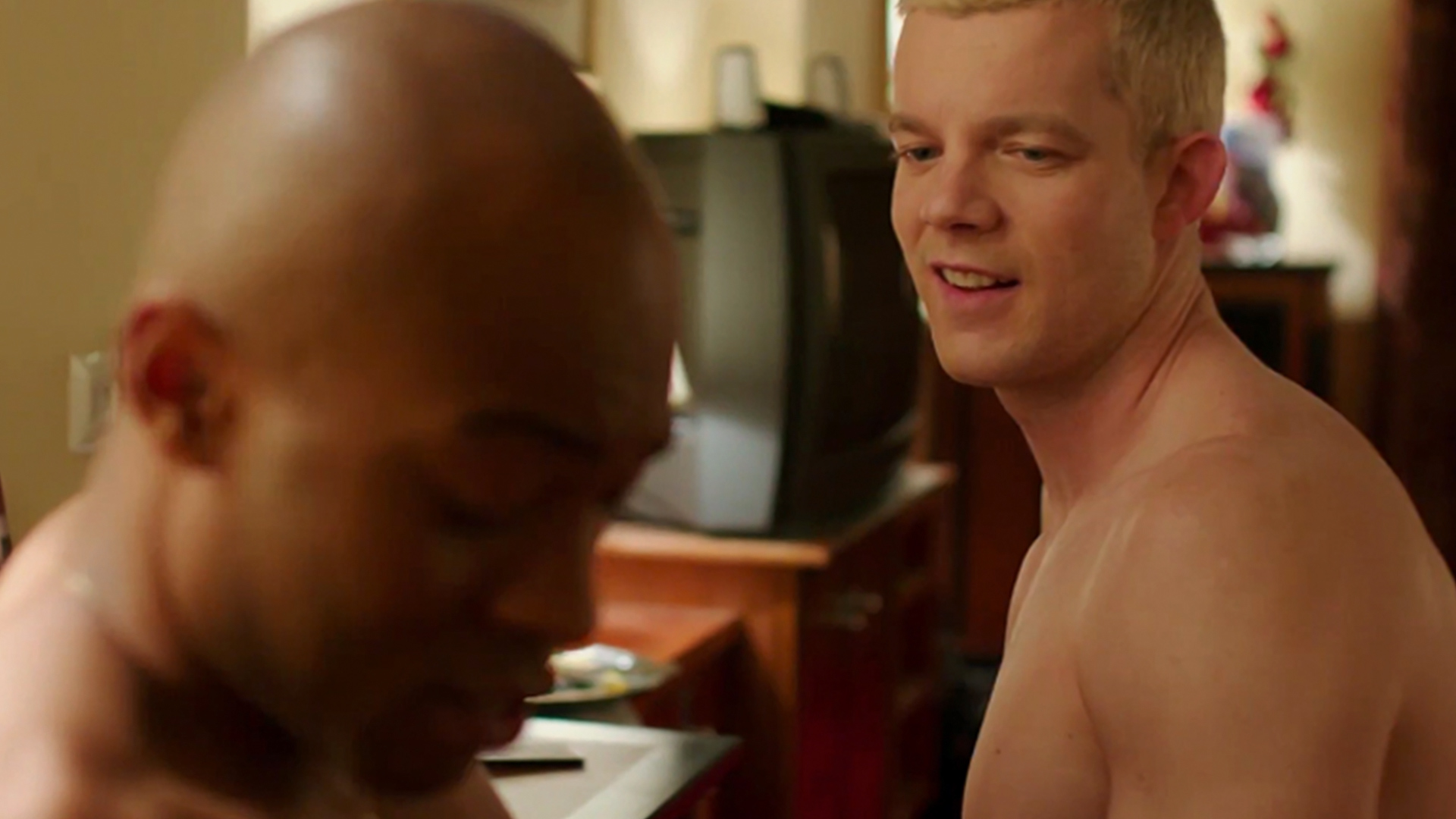The Pass (2016), directed by Ben A. Williams and written by John Donnelly (based on his stage play), is a gripping, minimalist drama that explores masculinity, sexuality, repression, and the psychological cost of denying one's identity. Set across three pivotal moments over a decade, the film focuses almost exclusively on two characters: Jason (played by Russell Tovey), a rising football star, and his teammate Ade (Arinzé Kene). What begins as an ambiguous moment of intimacy between them turns into a long, emotional reckoning with identity, fear, and the price of success.

The film’s title, The Pass, refers both to a literal football move and a metaphorical “pass” at someone—a moment of desire or vulnerability. This moment occurs early in the film, when Jason and Ade, alone in a hotel room the night before a big game, share a kiss. It’s a scene filled with tension, confusion, and unspoken emotions. Jason, caught between his feelings and the hyper-masculine culture of professional football, immediately pulls away and denies what happened. That denial becomes the central conflict of the film. The kiss is never just a kiss—it becomes a defining event that haunts both characters, especially Jason, for years to come.
Russell Tovey’s performance as Jason is a nuanced portrayal of a man imploding under the weight of societal expectations. Jason's arc shows how success, fame, and power can become hollow achievements when built on emotional repression and self-denial. Over the course of the film, Jason becomes increasingly paranoid, controlling, and emotionally erratic. His efforts to maintain the illusion of heterosexual normalcy—through aggression, womanizing, and manipulation—only deepen his inner torment. In contrast, Ade, while quieter and more reserved, slowly begins to accept himself. He represents the path not taken: a life that values authenticity over fame.

The film is structured in three acts, each taking place in a confined space—first in the hotel room, then in Jason’s lavish apartment, and finally in a rundown hotel. This theatrical approach heightens the emotional intensity and allows the dialogue and performances to carry the story. Each setting reflects Jason's internal state: from the excitement and fear of the first encounter, to the cold luxury of his fame, to the emotional ruin of the final confrontation. The confined, almost claustrophobic nature of these scenes mirrors the suffocating pressure of living a lie.
The Pass is also a strong commentary on the toxic culture within men’s sports, particularly football, where no openly gay player has been accepted at the top level without fear of backlash. The film doesn’t just tell a personal story; it criticizes an entire system that values image over authenticity and forces athletes to choose between their careers and their truth. The lack of external characters—fans, coaches, or family—emphasizes how isolating this experience can be. The real antagonist isn’t a person, but a culture of silence and shame.

In the final act, when Jason and Ade meet again, the emotional weight of the past is palpable. Ade has moved on, embracing his identity and rebuilding his life. Jason, by contrast, is emotionally fragmented, still unwilling to acknowledge his true self. Their reunion isn’t romantic or redemptive—it’s a devastating reflection of what could have been, and how fear can rob a person of not just love, but peace.


2-1742001062-q80.webp)